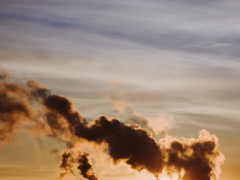Lower meat and dairy consumption benefits climate and health
When all inhabitants of the European Union (EU) would consume half as much of meat, dairy and eggs as they do today, the EU would achieve a 40% reduction in nitrogen emissions, a 25% - 40% reduction in greenhouse gas emissions from agriculture and 23% per capita less use of cropland for food production. In addition, the dietary changes would also lower health risks. These are some of the conclusions of the study 'Food choices, health and environment: Effects of cutting Europe's meat and dairy intake'. This study is conducted by the PBL Netherlands Environmental Assessment Agency in collaboration with an international group of researchers and is recently published Global Environmental Change.
Western diets in general are characterised by a high intake of meat, dairy products and eggs, causing an intake of saturated fat and red meat in quantities that exceed dietary recommendations. The researchers modelled the effect of halving meat and dairy consumption on health and environment. Apart from the effects mentioned above, the EU would become a net exporter of cereals, while the use of soymeal would be reduced by 75%. The nitrogen use efficiency (NUE) of the food system would increase from the current 18% to between 41% and 47%, depending on choices made regarding land use. As agriculture is the major source of nitrogen pollution, this is expected to result in a significant improvement in both air and water quality in the EU. These diet-led changes in food production patterns could have a large economic impact on livestock farmers and associated supply-chain actors, such as the feed industry and meat-processing sector.




